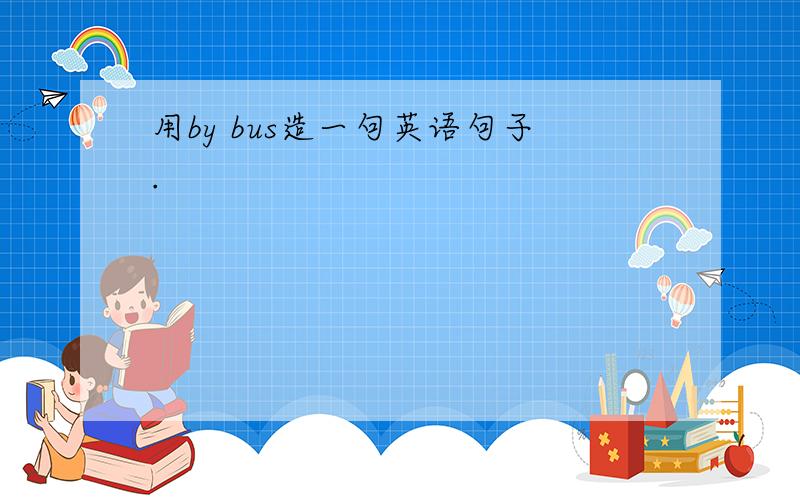用by bus造一句英语句子.
来源:学生作业帮助网 编辑:作业帮 时间:2024/11/19 12:40:10

用by bus造一句英语句子.
用by bus造一句英语句子.
用by bus造一句英语句子.
I go to school by bus.
我坐公交去上学
疑问句用来提出问题。分为一般疑问句,特殊疑问句,选择疑问句和反意疑问句四种。1. 一般疑问句:be 动词,情态动词,助动词等开头,表示疑问的句子。 eg: --- Are you a teacher? Yes. I am. / No. I'm not. --- Is there any books on the desk? Yes. there is...
全部展开
疑问句用来提出问题。分为一般疑问句,特殊疑问句,选择疑问句和反意疑问句四种。1. 一般疑问句:be 动词,情态动词,助动词等开头,表示疑问的句子。 eg: --- Are you a teacher? Yes. I am. / No. I'm not. --- Is there any books on the desk? Yes. there is./ No, there aren't. --- Is she doing her homework? Yes. she is. / No. she isn't. ---- Do you like ice-creams? Yes. I do. / No. I don't. --- Can you speak Chinese? Yes. I can. / No. I can't. 等等。2. 特殊疑问句:由特殊疑问词+一般疑问句 ? 构成的表示疑问的句子。( 特殊疑问词通常有:when / what / how / where / why / who / whose/ which ...等)eg: --- When are you going to leave? --- What time is it ? --- Where are you from? ---- Who is your English teacher? --- How do you feel today? 等等。3. 选择疑问句: 通常: 一般疑问句+or+选择部分? eg: ---- Do you like fruit or sweets? 你喜欢水果还是糖果? ---- Are you a teacher or a doctor? 你是老师还是医生? ----- Which is faster, a train or a plane? 火车,飞机哪个更快?4. 反意疑问句: 表示提问者对某事有主见,但没把握,希望对方来证实。 由 陈述句+简略疑问句? 构成。 基本结构: 肯定句+否定疑问句? 否定句+肯定疑问句? eg: --- Your mother is a nurse, isn't she? 你妈妈是护士,对吗? ---- He can speak English well, can't he? 他英语讲得很好,对吗? ---- She doesn't like winter, does she ? 她不喜欢冬季,对吗? %D%A
收起
I always go to school by bus!
I go to school by bus.
我坐公交车去学校。